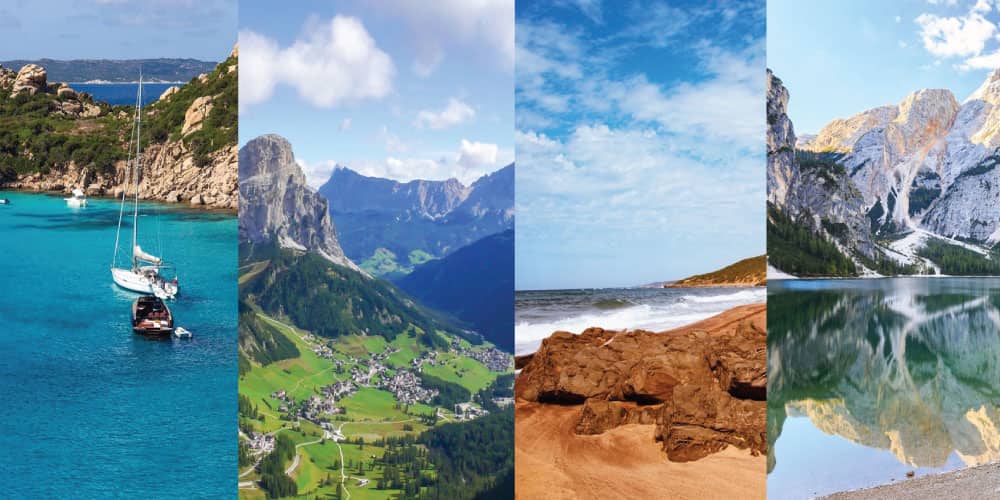The IIS, Istituto Superiore di Sanità in Italy, has conducted the first national study on the impact of the Covid-19 vaccination: after the vaccine, the risk of infection, death and hospitalisation drop.
The risk of SARS-CoV-2 infection, hospitalisation and death drops in vaccinated people. These are the main results obtained at the national level from the joint analysis of the national registry of vaccines and integrated surveillance COVID-19 contained in a report, edited by the Working Group ISS and Ministry of Health "Surveillance COVID-19 vaccines" in collaboration with the regional referents of the integrated surveillance COVID-19 and with the regional referents of the national registry of vaccines.
This report collected data from 27 December 2020, the date of the start of the vaccination campaign in Italy, until 3 May 2021. There are 13.7 million people currently vaccinated in Italy and 95% of them have completed the Comirnaty or Moderna vaccine cycle with the two doses provided within the indicated timeframe, while for the AstraZeneca vaccine none of the people included in the study had received the full cycle.
The pooled analysis showed that the risk of SARS-CoV-2 infection, hospitalisation and death decreased progressively after the first two weeks. From 35 days after the start of the vaccination cycle there is an 80% reduction in infections, 90% reduction in hospitalisations and 95% reduction in deaths; these effects are similar in both men and women and in people of different age groups.
INFO ISTITUTO SUPERIORE DI SANITA'

"These data - comments Iss President Silvio Brusaferro - confirm the effectiveness of vaccinations and of the vaccination campaign, and the need to reach high coverage rates throughout the population as soon as possible in order to get out of the emergency thanks to this fundamental tool".
Sergio Abrignani, immunologist at the State University of Milan and member of the Scientific Technical Committee (STC) told Sky Tg24: "The pandemic is under control, in the sense that not only is the number of infected falling, but above all the percentage of swab positives has fallen below 3%, it was at 6% on 26 April. The reopenings on 26 April could have been dangerous, but we behaved well," he said. "The children, despite the reopening of the schools, were not the 'unctors' that many expected. "You can see the light at the end of the tunnel, which is vaccination," he said further.
Is Italy one of the safest country in Europe? At least ten reasons

Although this ISS study and other data on the spread of the pandemic are very positive and encouraging, we have no absolute certainty about the total safety of individual countries. In fact, Viaggiare Sicuri, the Farnesina portal that indicates all the regulations in force for Covid-19 restrictions and other types of risks and warnings, states that no country in the world, at present, belongs to LIST B, which represents those at low epidemiological risk.
Visit Italy has come up with at least 10 good reasons why we can well hope that our country can be considered one of the safest countries in Europe from the viewpoint of epidemiological risk:
1 - COVID FREE ISLANDS | there are many covid free islands: the Aeolian Islands, the islands of the Gulf of Naples (Ischia, Capri and Procida), the Tremiti islands, the island of Giglio, the island of Maddalena, Linosa, Lampedusa and soon Pantelleria, Ustica and Favignana
2 - ANTI-COVID-19 RULES | regulations in daily routines are still strict: in Italy it is compulsory to wear a mask and gatherings of people are prohibited
3 - GREEN ITINERARIES | In Italy there are many green itineraries, in the Italian nature, that can be defined as low epidemiological risk and in addition to the city and the sea, it is possible to choose unusual destinations that are very quiet and avoid masses. From trekking to walking, from cycling holidays to camping.
4 - MASS VACCINATIONS | Vaccinations continue and therefore, in accordance with the ISS study, the risks and contagions will certainly fall more and more. In many cities and destinations, there are open days where vaccination is open to all.
5 - OPEN BORDERS BUT WITH EXTREME ATTENTION | no one will enter Italy without a negative swab or Green Card, so even if Italy is open to many tourists, attention to the epidemiological aspect is always high.
6 - COVID-TESTED FLIGHTS | From the United States, the United Arab Emirates, Japan and Canada, special flights called covid-tested will be used.
7 - COVID FREE TRAINS | In Italy there are many covid free trains that can only be accessed with a negative swab.
8 - SAFE COMMERCIAL ACTIVITIES | The commercial activities open in Italy are strictly controlled by the ASL (Aziende Sanitarie Locali - Local Health Authorities) and other State control bodies. Anti-vaccination regulations are very strict and there is an epidemiological risk in bars, restaurants, hotels and holiday homes.
9 - WILD BEACHES AWAY FROM THE CAOS | For those who prefer uncrowded beaches, there are many locations on the large islands of Sicily and Sardinia and also in Calabria that offer very large, uncrowded beaches.
10 - HOLIDAYS BY BOAT AND CAR | In Italy, you can travel comfortably from the North to the South of the country by car: one of the trips we recommend the most is the Fly and Drive and in this section TOURS of VISIT ITALY you will find many examples. In addition, there is the possibility of a boat holiday: gulet, sailing, yacht: Italy offers excellent proposals.
About the author
Written on 18/05/2021



Francesca Annunziata
The number of people vaccinated in Italy is growing day by day and the number of cases is falling. This is certified by the Istituto Superiore di Sanità in the first study conducted on vaccinations in Italy. Italy reopens its borders to the world and we are gradually back to normal.